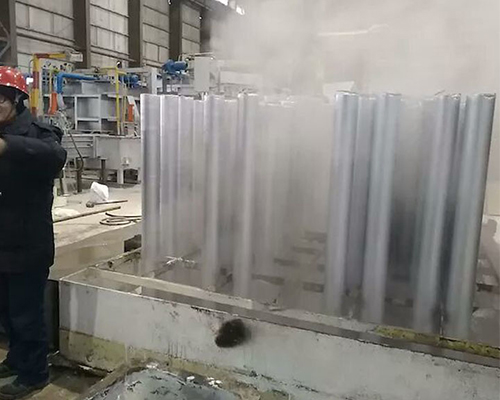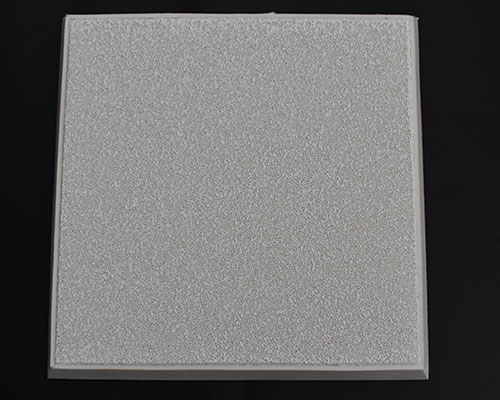The cast filter can clean aluminum and is used for aluminum billet casting, aluminum foil casting, slab casting, etc. The alumina crystallizer filter can effectively remove and absorb various impurities in the molten aluminum, and improve the surface quality, product performance and microstructure effectiveness. Cast filter is mainly used for precision casting of aluminum alloy.
The ceramic foam filter can significantly improve the removal rate of small inclusions, and can also partially offset the decrease in the removal rate of inclusions caused by the increase in density. The filter increases the flow resistance of the molten aluminum, prolongs the average residence time of the molten aluminum, and reduces the volume fraction of the dead zone in the tundish.
The alumina ceramic foam filter used for casting is sold all over the world to purify molten aluminum.
AdTech focuses on the aluminum alloy casting industry, providing aluminum liquid filtration systems, hot top casting systems, casting heads and other solutions.
In addition to the high temperature resistance and corrosion resistance of general ceramics, foam ceramics also have the characteristics of low density, high porosity, large specific surface area, and strong self-interference with fluids.
If the solids forming the foam are contained only at the edges of the pores, it is called an open-cell ceramic material, and the pores are connected to each other. If there is a solid wall, it is called a closed-cell ceramic material, in which the pores are separated by a continuous ceramic matrix.

The Guinea coup has a short-term impact on aluminum prices? The local military has promised to guarantee the export of minerals.
On Sunday, local time, a coup took place in Guinea, a West African country. The military seized power, disbanded the government and suspended the constitution. President Alpha Conde was arrested.
This incident pushed up aluminum prices rapidly. Guinea has the world’s largest reserves of bauxite, and changes in its domestic political situation have directly caused bauxite prices to rise.
According to Asian Metal’s assessment, this Monday, the delivery price of bauxite exported from Guinea to China once hit an 18-month high of US$50.50/ton, up 1% from last Friday. Since the beginning of this year, the delivery price of bauxite has risen by 16%. However, the main reason for the increase in the delivery price of bauxite is that buyers are concerned about the impact of the Guinea coup on supply, but in fact no miners have reported supply disruptions.
As the price of bauxite rose, the price of aluminum futures also rose, and the price of LME aluminum on Monday hit a new high in nearly ten years. This influence has also spread to the stock market. In the international market, the share prices of aluminum producers such as Norsk Hydro and Rusal have both risen; in the A-share market, the share prices of aluminum producers such as Aluminum Corporation of China have also risen.
However, the upward momentum of aluminum prices failed to continue until Tuesday. As of this Tuesday, the main aluminum futures of LME fell slightly by 0.11%, and the main Shanghai aluminum futures rose by 0.28%.

